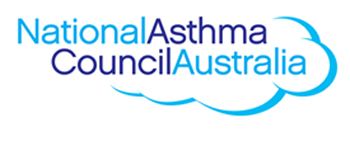Get Asthma and Allergy-Ready This Spring

Get Asthma and Allergy-Ready This Spring
While spring time promises warmer weather for all, it also means itchy eyes, sneezing and wheezing for the 7 million Australians with asthma or allergies.
Increased pollen in the air (often worsened by hot, dry and windy conditions), plus thunderstorms and temperature changes, make spring a time to be on high alert for asthma and allergy symptoms.
Other common allergic triggers of asthma, including dust mites, pets and mould, can also have a negative effect. These allergens tend to collect over the winter, leading to a potentially dangerous build-up of these common asthma triggers in your home.
Kristine Whorlow, CEO of the National Asthma Council Australia, advises people with asthma or allergies to take extra care during spring:
'Seasonal pollens during spring can result in airway inflammation and trigger asthma symptoms such as wheezing, coughing and shortness of breath. And many people don't realise that having an itchy, runny or blocked nose due to allergies can make asthma harder to control.
'It is very important to ensure your asthma action plan is updated before spring starts, so you know exactly what to do if your asthma flares up. Also, speak with your GP, nurse or pharmacist to check that you are using the right technique for your asthma inhaler or allergy nasal spray."
While spring-cleaning can help reduce allergy and asthma triggers in your home, it must be done with care to avoid causing a flare-up of asthma or allergies.
Ms Whorlow continues: 'A thorough clean can help reduce exposure to allergen triggers such as dust mites, pet hair and mould. However for some people, cleaning chemicals, particularly in confined spaces, or dusting, which stirs up dust in the air, can actually trigger an asthma attack."
The National Asthma Council Australia recommends the following tips to reduce the impact of spring on your asthma or allergies:
During the pollen peak:
• Try to avoid the outdoors on days with a high pollen count (particularly 7–9 am and 4–6 pm), on windy days or after thunderstorms.
• After being outside, take a shower (or wash your face and hands thoroughly) and wash your clothes. Pollens stick to your body and washing immediately after reduces the amount of pollen transferred into your home.
• Dry your sheets and clothes indoors. Outdoor clotheslines can leave your laundry coated with pollen.
• Don't mow the grass yourself, and stay inside when it is being mown.
• Remove any plants you are sensitive to from your garden. Problem plants are usually imported species pollinated by the wind, so talk to your local nursery about allergy-friendly alternatives such as Australian natives and highly flowered plants.
• Speak with your GP, make sure you have your prescribed medication and also that you have an asthma action plan. Upload your asthma action plan onto the Asthma Buddy smartphone app, a clinically developed app that ensures you and those around you know exactly what to do when your asthma symptoms worsen.
Spring cleaning tips:
• Make sure mattresses and pillows are low allergy, or encased in mite-proof covers. Remove old soft toys and old soft furnishings, if possible. Soft toys can be placed in the freezer overnight to kill dust mites (although this will not remove allergens – washing in temperatures above 55C is better, if possible).
• Do not forget your car in the spring cleaning routine. Cars often contain allergens or respiratory irritants as air intakes may scoop up pollen allowing it to be spread into the car interior and air ducts can collect leaves and other debris, which can retain moisture, allowing mould to grow. Consider getting your filter replaced and clean out car ducts, particularly if there is a musty smell coming from them
• Carpets need to be vacuumed regularly – however vacuuming increases some allergens in the air for up to 20 minutes. If you have asthma, ask someone else to do the vacuuming for you and wait for 20 minutes before re-entering the room.
• Clean your curtains and blinds throughout your home as these may have picked up pollen and dust.
• Change or clean all old filters such as on air conditioners or air purifiers.
• Wash bedclothes weekly in hot water (over 55°C).
• Check out the National Asthma Council Australia's Sensitive Choice® website (www.sensitivechoice.com.au) for recommended house cleaning products that may be better choices for people with asthma and allergies.
For more information on managing your asthma and allergies during the spring season and to download the Asthma Buddy app, visit the National Asthma Council Australia website: www.nationalasthma.org.au
MORE



